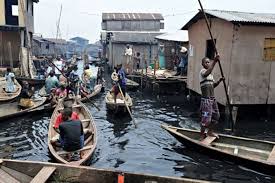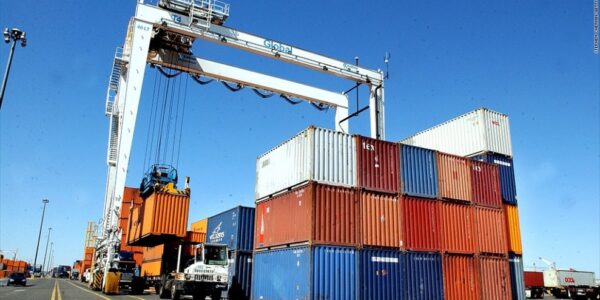ON THE SPOT MANAGER
Search Light on Inland Waterways: Commercial Activities on the Isuti River
 Egan is a relatively coastal community on the outskirts of Alimosho Local Government Area of Lagos State. It is a densely populated community, being home to thousands of indigenes and settlers from all over the State and indeed, from all over Nigeria. Toto-Owu, on the other, is another coastal community in Ogun State. It is a rural settlement, but not as populated and as busy as Egan. So what do these two communities in different States have in common?
Egan is a relatively coastal community on the outskirts of Alimosho Local Government Area of Lagos State. It is a densely populated community, being home to thousands of indigenes and settlers from all over the State and indeed, from all over Nigeria. Toto-Owu, on the other, is another coastal community in Ogun State. It is a rural settlement, but not as populated and as busy as Egan. So what do these two communities in different States have in common?The Isuti River, of course; the river, which links not just to Toto-Owu, also connects Egan to Agbara, Imoshe and Ayobo-Ipaja on different fronts. Hence, the status of the Isuti River in the day to day lives of the resident of these communities cannot be downplayed. Every day, many come from afar to cross the river on motor-powered canoes, to and from their places of work.
To cross the river from one end to the other costs only N100 per passenger and a single operator could make up to twenty trips in a day. Of course, transporting heavier goods would cost a little more than transporting people. “I have been working here for a long time,” says an eager boat operator. “I can make up to N6, 000 on a good day, after I must have paid the necessary levies here.”
It is comforting to note that the boat operators of Isuti River are strict about the number of passengers that their boats carry per trip. They never exceed the 15-passenger-limit set by their Association. And when they have to ferry a motor-cycle (okada) along, they have to reduce the number of passengers by two for every one okada.
However, the use of life-jackets onboard the canoes is another matter altogether. Even though the operators have made the jackets available, they have not made use of them compulsory. So some passengers refuse to wear them while others who do, don’t wear them properly. They just throw it over their heads and leave it unstrapped. Perhaps, like the boat operators, the passengers are used to the river and have become complacent.
“Some of the buckles are broken,” says Mr. Tobor Aigbe, a regular crosser. “We just put it on our necks for formality and commit our lives to God.”
Incidentally but not surprisingly, the river is also explored by car-smugglers and importers of such banned food materials like oil, rice and frozen chicken. In spite of the ban on imported frozen turkey and chicken, the demand is still high and importers are still in business.
Statistics from the Poultry Association of Nigeria (PAN) reveals that nearly N700b is spent on smuggled frozen chicken in Nigeria yearly. With the searchlight of the Customs focused on more frequently used smuggling corridors, the Isuti River, many eye-witnesses say, is one of the ‘insignificant’ routes that smugglers are now exploring to bring in contraband from Badagry to Toto-Owu and across the river by barges strong enough to transport cars across the river.
“Smuggling activity here has reduced,” says a resident, Mrs. Beatrice Obi. “In the past, it used to be worse. Those who bring in cars take this river to dodge police and customs.”
Another issue of concern on the Isuti River is that there doesn’t seem to be a closing time for the operators. Even after dark, one could still get a boat across the river, in spite of the risk that such adventure poses.
Whilst the boat operators of Isuti/Toto-Owu must be applauded for making the most of the economic situations and earning justifiable income for themselves, they must also take safety issues more seriously by ensuring their life jackets are in proper shape. Then they must insist that all the passengers on their boats wear them on properly.
Relevant authorities like NIMASA are also called upon to endeavour to create a monitoring unit to oversee the operations of commercial transport on a number of our local channels and rivers, if there are none. The boat operators, with a strong association, simply run their affairs on their own. It will be noted that the presence of government is not strong across many rural rivers and hinterlands where commercial marine transport operations take place.
If the opposite was the case, perhaps many unfortunate boat accidents we have witnessed might have been averted.





